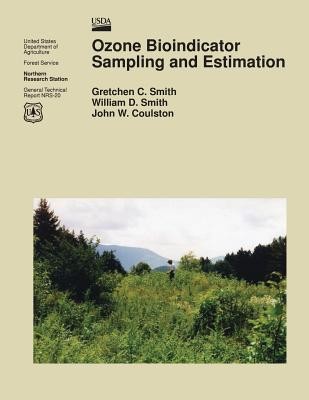
- We will send in 10–14 business days.
- Author: Smith
- Publisher: CreateSpace Independent Publishing Platform
- Year: 2015
- Pages: 40
- ISBN-10: 1508410976
- ISBN-13: 9781508410973
- Format: 21.6 x 28 x 0.2 cm, minkšti viršeliai
- Language: English
- SAVE -10% with code: EXTRA
Reviews
Description
Ozone is an important forest stressor that has been measured at known phytotoxic levels at forest locations across the United States. The percent forest exhibiting negative impacts from ozone air pollution is one of the Montreal Process indicators of forest health and vitality. The ozone bioindicator data of the U.S. Forest Service Forest Inventory and Analysis Program (FIA) are the only source of information available that documents plant injury from air pollution using consistent protocols. This document introduces the FIA ozone indicator and describes the sampling and estimation procedures of the national biomonitoring program. We provide background material on ozone, examples of bioindicator summary statistics, a description of spatial interpolation, and methods to estimate status and change in forested areas with respect to the occurrence of ozone injury from ambient ozone concentrations. The goal is to provide guidance to analysts and researchers on ways to incorporate ozone bioindicator data into reports and research studies. Periodic recommendations to analysts on improved analytical techniques will be made.
EXTRA 10 % discount with code: EXTRA
The promotion ends in 23d.20:57:56
The discount code is valid when purchasing from 10 €. Discounts do not stack.
- Author: Smith
- Publisher: CreateSpace Independent Publishing Platform
- Year: 2015
- Pages: 40
- ISBN-10: 1508410976
- ISBN-13: 9781508410973
- Format: 21.6 x 28 x 0.2 cm, minkšti viršeliai
- Language: English English
Ozone is an important forest stressor that has been measured at known phytotoxic levels at forest locations across the United States. The percent forest exhibiting negative impacts from ozone air pollution is one of the Montreal Process indicators of forest health and vitality. The ozone bioindicator data of the U.S. Forest Service Forest Inventory and Analysis Program (FIA) are the only source of information available that documents plant injury from air pollution using consistent protocols. This document introduces the FIA ozone indicator and describes the sampling and estimation procedures of the national biomonitoring program. We provide background material on ozone, examples of bioindicator summary statistics, a description of spatial interpolation, and methods to estimate status and change in forested areas with respect to the occurrence of ozone injury from ambient ozone concentrations. The goal is to provide guidance to analysts and researchers on ways to incorporate ozone bioindicator data into reports and research studies. Periodic recommendations to analysts on improved analytical techniques will be made.


Reviews